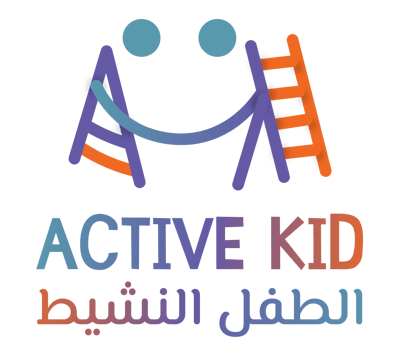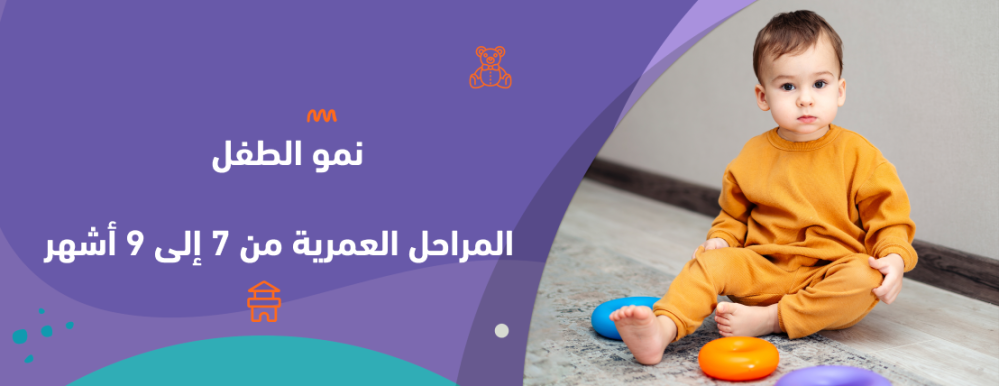Child development: Age stages from 7 to 9 months
A baby's growth during the early stages of life is a unique experience full of surprises for both the baby and the parents. During this period, the infant develops remarkably quickly, acquiring many motor, language and social skills that serve as the foundation for his future development. In this article, we review in detail the stages of infant development from 7 to 9 months of age, with tips to enhance this growth and support the child during this important stage.
Infant motor skill development
1. Turning and sitting
By the age of 7 months, most babies can roll over in both directions while sleeping or playing. By 8 months, babies may be able to sit up on their own for extended periods of time without support.
2. Crawling and moving
By the end of this period, many babies will be crawling or moving backwards and forwards, while some may be pulling themselves up to a standing position using furniture. You may see your baby grabbing onto the edge of a sofa to take small, supported steps, building leg strength and preparing them for walking in the coming months.
3. Developing fine muscles
Babies at this age tend to have improved hand-eye coordination. They can easily transfer objects from one hand to the other and put them in their mouths. At this time, the baby may also demonstrate fine motor skills such as grasping small objects between the thumb and index finger, a development known as the “pincer grasp.”
Ball pool for kids With a set of 150 balls which are made of hypoallergenic material.
Improve communication skills
1. Respond with sounds and gestures
At this age, babies begin to express their feelings and needs using a variety of sounds and gestures. You may hear them laughing happily or crying out in happiness or frustration.
2. Attempts to pronounce
As your baby grows, he'll begin to imitate sounds he hears around him. You'll hear babbling like "ba-ba-ba" or "da-da," and with a little patience and repetition, you may hear words like "mama" or "dada."
3. Facial expressions
Your baby's ability to use facial expressions to communicate with others is developing. Your baby may smile or raise his eyebrows to express surprise, which enhances his interaction with those around him.
Steps to enhance child development
1. Create a safe environment for exploration.
At this stage, the child is more curious and active, so it is important to provide a safe environment for play and discovery.
- Cover electrical outlets and use safety gates on stairs.
- Remove small or dangerous objects that could cause choking.
- Secure furniture such as shelves and tables to prevent them from falling.
You can protect your child from fractures or harm while playing with Active Kid protective sponges.
2. Focus on interactive play
Play is the main way children learn. You can try:
- Hide and seek games that help improve cognitive skills.
- Arrange pillows and cubes to encourage the baby to crawl.
- Playing with water toys while bathing to promote hand-eye coordination.
3. Daily reading
Reading aloud to your child promotes language development and vocabulary growth. Choose colorful picture books and use different facial expressions and voices to make reading fun and exciting.
4. Encouraging child independence
Give your child the opportunity to explore his environment on his own. Use interactive toys that stimulate curiosity and develop fine motor skills.
Like a set of indoor games for kids Baby Gym
Warning signs of child development
In some cases, you may notice a delay in the development of certain skills in your child. It is important to watch for the following signs:
- Inability to sit alone by 9 months.
- The child does not respond when his name is called.
- The child does not try to crawl or move in any way.
- Using one side of the body more than the other.
- Inability to perform simple gestures such as waving.
If you notice any of these signs, it is best to consult a pediatrician to assess the child's condition and ensure proper development.
The role of parents in supporting the child
Parents are the most important factor in supporting a child during the stages of his development. Once the right environment is provided, the child can explore and develop his skills with confidence. Remember that every child develops at a different pace, so do not worry if your child needs extra time to acquire some skills.
conclusion
Watching your baby grow from 7 to 9 months is an exciting experience full of happy moments. By providing the right support and environment, you can help your baby develop healthy motor, language and social skills. Don’t forget to be patient and enjoy every moment with your baby, these are short stages but they have a big impact on his future.

